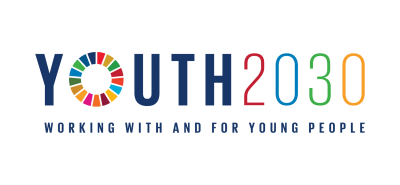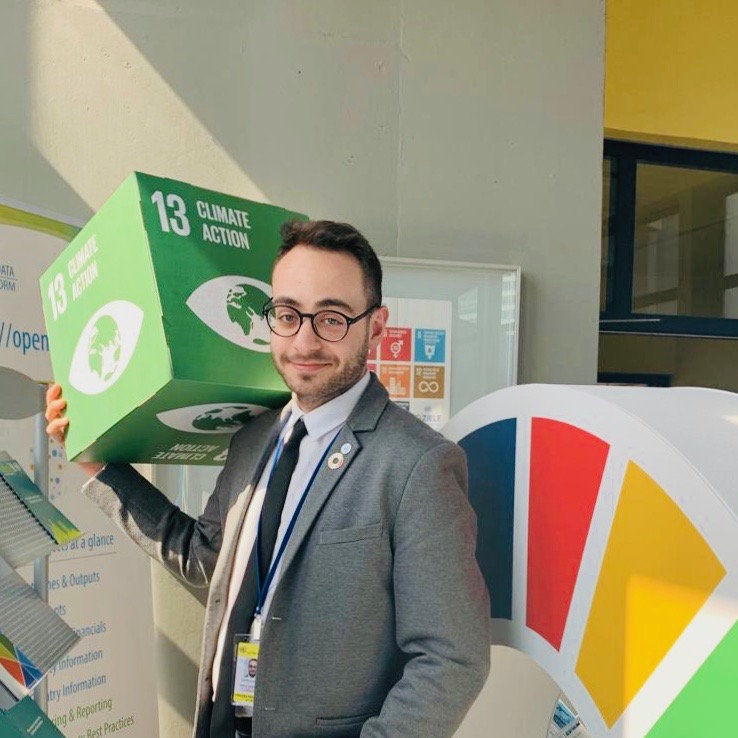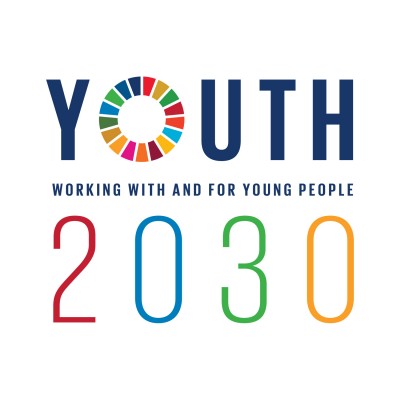SGAC Involvement with the United Nations

The United Nations Office for Outer Space Affairs (UNOOSA) and the Space Generation Advisory Council (SGAC) are launching an essay competition for students and young professionals. The competition aims at bringing new ideas and proposals to tackle climate challenges using space, thus contributing to the Sustainable Development Goals (SDGs).
At the United Nations level, youth development and youth engagement are cross-cutting issues in the 2030 Agenda for Sustainable Development. The UN Youth Strategy, launched by the Secretary General in September 2018, recognizes that young people’s empowerment, development and engagement are goals as well as a means to build a better world.
The United Nations Office for Outer Space Affairs (UNOOSA) works to strengthen international cooperation in space activities and in the use of space science and technology for achieving sustainable development. UNOOSA is the only United Nations Office entirely dedicated to outer space activities.
The Space Generation Advisory Council in Support of the United Nations Programme on Space Applications is a global non-governmental, non-profit organization and network representing university students and young space professionals to the United Nations, space agencies, industry, and academia.
“The exploration of outer space and the development of space technologies are, by nature, long-term, inter-generational pursuits. Through initiatives such as this one, UNOOSA is strengthening the involvement of the next generation in outer space affairs for the achievement of the SDGs, in line with the 2030 Youth Strategy of the United Nations Secretary-General. We aim to ensure that young people are not only the recipient of decisions made on local, national or global level, but also an integral part of the decision-making process.”
#Space4Climate
Space as a tool to address climate challenges: examples from local communities.

This Competition aims at giving voice to youth at international level and to show how young people can drive and contribute to the achievement of the Sustainable Development Goals, more specifically Goal 13, Climate Change.
Climate change is the defining issue of our time. From shifting weather patterns that threaten food production, to rising sea levels that increase the risk of flooding, the impact of climate change is global in scope and unprecedented in scale. Action is needed and young people play a key role. UNOOSA and SGAC want to give a voice to and promote youth’s ideas on how space, in all its aspects, can mitigate climate challenges.
Participants will submit an essay on “Space as a tool to address climate challenges: examples from local communities”. Participants will focus on SDG 13, Climate Action, describing how space can be used to tackle climate challenges underlining concrete, realistic and original examples of how space policy, space law, space technologies and other applications can address climate change in local communities.
What is the United Nations Office of Outer Space Affairs?
The United Nations Office for Outer Space Affairs is the United Nations office responsible for promoting international cooperation in the peaceful uses of outer space. The Office serves as the secretariat for the General Assembly’s only committee dealing exclusively with international cooperation in the peaceful uses of outer space: the United Nations Committee on the Peaceful Uses of Outer Space (see also page for further information on the Committee.). The Office is also responsible for implementing the Secretary-General’s responsibilities under international space law and maintaining the United Nations Register of Objects Launched into Outer Space. Through the United Nations Programme on Space Applications, the Office conducts international workshops, training courses and pilot projects on topics that include remote sensing, satellite navigation, satellite meteorology, tele-education and basic space sciences for the benefit of developing nations. The Office also prepares and distributes reports, studies and publications on various fields of space science and technology applications and international space law. Documents and reports are available in all official languages of the United Nations through this website. The Office is located at the United Nations Office at Vienna, Austria. Learn more about United Nations Office for Outer Space Affairs: http://www.unoosa.org/oosa/index.html
What are the Sustainable Development Goals (SDGs)?
The 2030 Agenda for Sustainable Development, adopted by all United Nations Member States in 2015, provides a shared blueprint for peace and prosperity for people and the planet, now and into the future. At its heart are the 17 SDGs, which are an urgent call for action by all countries – developed and developing – in a global partnership. They recognize that ending poverty and other deprivations must go hand-in-hand with strategies that improve health and education, reduce inequality, and spur economic growth – all while tackling climate change and working to preserve our oceans and forests. Find out more about all 17 SDGs: https://sustainabledevelopment.un.org/?menu=1300 Find out more about space and sustainable development: http://www.unoosa.org/oosa/en/benefits-of-space/sustainable-development.html Find out more about SGAC and the SDGs: https://spacegeneration.org/united-nations/sdgs

What is the Youth 2030 Strategy?

At the United Nations level youth development and youth engagement are cross-cutting issues in the 2030 Agenda for Sustainable Development. The role of Youth has also been acknowledged at the UN level through Security Council Resolutions 2250 (2015) and 2419 (2018), acknowledging that young people play an important and positive role in the realization of sustainable development, in the prevention of crises and in the advancement of peace. The Strategy aims to facilitate increased impact and expanded global, regional and country-level action to address the needs, build the agency and advance the rights of young people in all their diversity around the world. The Strategy works to ensure their engagement and participation in the implementation, review and follow-up of the 2030 Agenda for Sustainable Development as well as other relevant global agendas and frameworks. The Strategy also recognizes that young people’s empowerment, development and engagement is an end in itself, as well as a means to build a better world. The UN cannot achieve its mission without partnering with young people and ensuring they are not only heard but understood, not only engaged but empowered, and not only supporting but leading global efforts and processes. Young people need to be full-fledged partners in the United Nations work to build a better world for all, as they are both beneficiaries and partners. Find out more about UN Youth Strategy: https://www.un.org/youthenvoy/youth-un/
Meet Victoria Alonsoperez, Young Leader for the Sustainable Development Goals!

“As a Young Leader for the Sustainable Development Goals I work to engage young people and further initiatives to support the UN 2030 Agenda for Sustainable Development. We can only achieve the Agenda if we all collaborate, especially with the youth population made up of 1.8 billion people between the ages of 10 and 24 years old.
The space industry is very important to achieve the Agenda. Space technology can help forecast weather, asses in disaster management, and make agriculture and farming, among other industries, more efficient. It is also crucial for developing countries depending on commodities. The space industry is constantly growing and will be a source of employment for many of today’s youth.”


